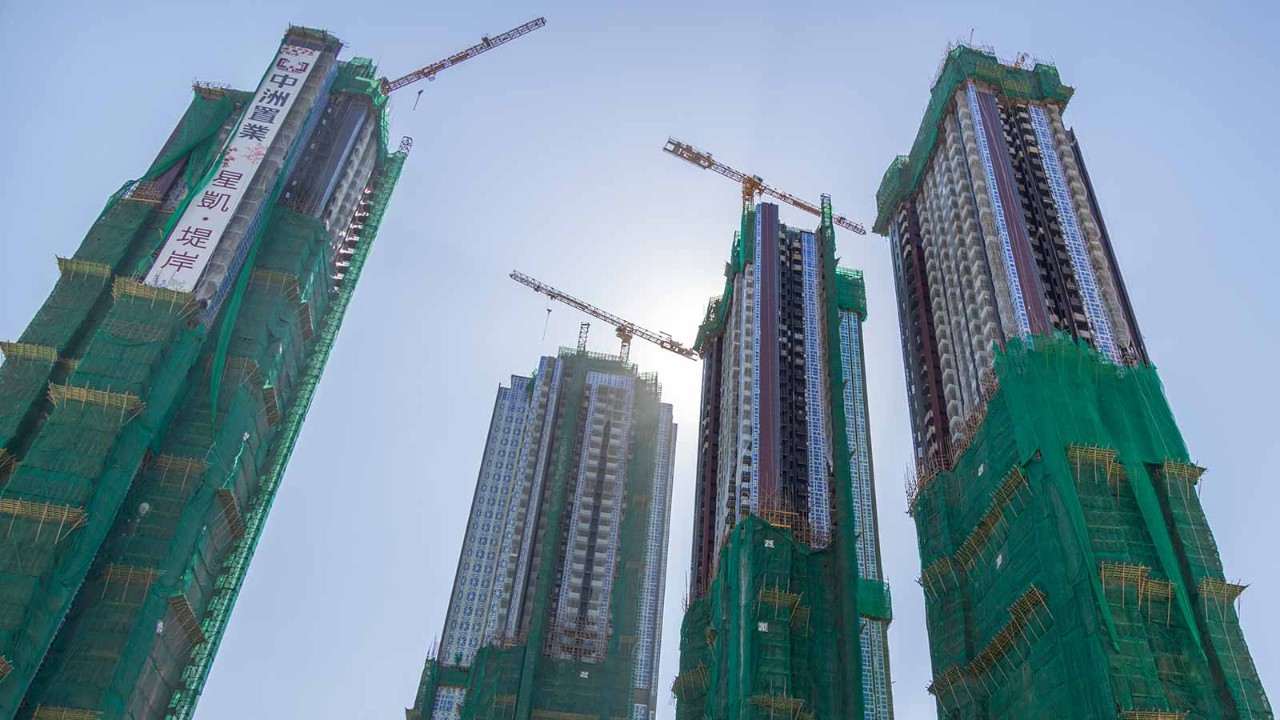
Mainland China enters the new year facing a proliferation of headwinds, ranging from a property sector shake-out to tough restrictions on activity to contain the Covid-19 pandemic.
Policymakers initially took a measured approach in addressing the slowdown, but they have now stepped up their support for the economy in recent weeks. The net result should be that the economy grows more slowly this year but avoids a major downturn.
Property challenge
The major challenge is the property market. Economic managers had been progressively imposing controls to tackle over-investment and excessive debt. Consequently, the real estate market has slowed sharply and some large developers are in financial difficulties.

An abrupt slowdown in the real estate sector could be highly damaging
Shaken by these ructions, home buyers, mortgage lenders, construction companies and building material suppliers have all been wary of dealing in the housing market. With real estate activities accounting directly and indirectly for around 30% of the economy, an abrupt slowdown in the sector could be highly damaging.
A second headwind is the approach to Covid-19 management, with continuing localised lockdowns leading to consumer caution over spending and a slowing of production in some key areas.
A third concern is that more rigorous regulation of platform technology companies and stricter controls on education-related businesses may affect private sector confidence. Investment spending contributes around 43% to total demand in mainland China; weaker investment would therefore have an outsized impact on the economy.
Finally, unresolved trade tensions with the US might still result in US protectionism that could depress mainland China’s exports. However, trade talks are set to resume soon and both sides have an interest in avoiding further trade aggression.
Policy support
Following the Central Economic Work Conference in December, there has been a remarkable flurry of policy actions, with the central bank and government agencies stepping in to alleviate risks. In the property market, state-owned financial institutions have bought assets from companies in difficulty while liquidity is being offered to better-run companies. Some restrictions on property lending have also been eased.
The central bank has eased monetary conditions in a calibrated manner, taking pains to avoid the errors made in the past when a slowdown in the economy led to massive amounts of credit being offered, in turn leading to imbalances such as excessive debt on the balance sheet of developers and related firms.
Prime Minister Li Keqiang has also called for more efforts to boost domestic demand. As a result, the implementation of several government infrastructure projects will now be speeded up, with projects associated with food and energy security, advanced manufacturing and hi-tech industries, affordable social housing and infrastructure developments being given priority.
Given the much slower growth of the population, economic expansion of around 5% a year is a reasonably good outcome
Vice Premier Hu Chunhua has also instructed government agencies to create new jobs, particularly for this year's record number of university graduands. In addition, Premier Li has promised larger cuts in taxes and fees to alleviate the burden on companies.
Reasonable outcome
Mainland China probably ended 2021 with the economy expanding by roughly 7.5% to 8%. The pace of expansion had to decelerate in 2022 after such a robust rebound from the sharp slowdown during 2020.
Given the much slower growth of the population, economic expansion of around 5% a year is a reasonably good outcome and this is likely to be achieved so long as the policy support outlined above is implemented effectively and no new challenges emerge.
As a result, import demand from mainland China will still contribute to overall demand growth in the global economy, and its consumption of raw materials should help to support commodity prices. As the economy stabilises, the Chinese yuan is also likely to remain firm.
While there might be occasional episodes of concern – say, if there were to be a large cluster of infections in a major industrial area – by and large, mainland China’s impact on the rest of the world this year is likely to be benign.


